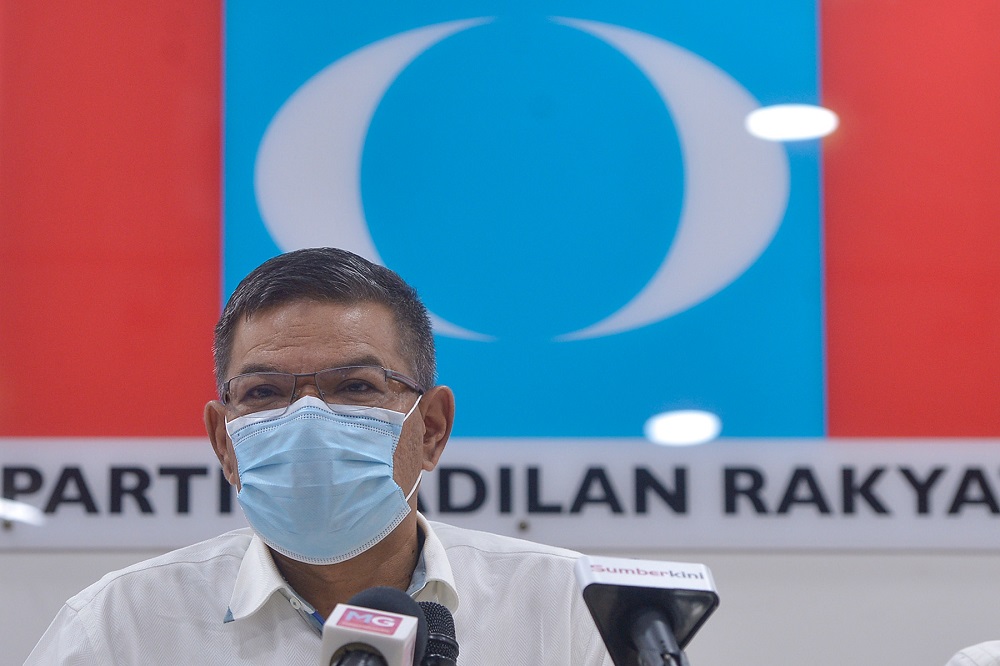KUALA LUMPUR, March 14 — PKR secretary-general Datuk Seri Saifuddin Nasution Ismail today refuted a former PAS MP’s claim that there were seat negotiations between Pakatan Harapan (PH) and Perikatan Nasional (PN) for the Johor state election.
“I read the statement of Khairuddin Aman Razali, Member of Parliament for Kuala Nerus who claimed that there were seat negotiations between Pakatan Harapan and Perikatan Nasional to face the Johor state election. The allegation is not true at all.
“The fact is that Pakatan Harapan including Muda (Malaysian United Democratic Alliance) contested in all 56 seats in Johor, and clashed with Perikatan Nasional in all those seats,” he said in a statement posted on his Facebook.
Malaysiakini yesterday reported Khairuddin claiming that there was a previous proposal for PN to hold seat talks with PH to oppose Barisan Nasional (BN) in the Johor state election.
He reportedly said that if the agreement is reached, some state seats can be wrestled by PN and PH from BN, such as Bukit Pasir, Serom and Tenggaroh. However, he said PAS rejected the proposal on the basis of principle, expressing hope that such a proposal will not be raised for the second time for the sake of winning.
Khairuddin said that the three seats mentioned will see a split of votes that would be in favour of PN and PH if the two coalitions joined forces.
The now-former PAS member who exited from the party earlier today, said the combination of PN’s and PH’s votes could defeat BN in Bukit Pasir (PN, 5,850 votes and PH, 4,676 votes, compared to BN, 6048 votes), Bukit Serom (PN, 5,850 votes and PH, 4,676 votes compared to BN, 6,048 votes), and Tenggaroh (PN, 9,172 votes and PH, 1,529 votes compared to BN, 10,528 votes).
On Saturday night, BN had secured Johor with a super-majority, making a stunning comeback.
BN, led by lynchpin Umno, won 40 seats in the 56-seat state assembly after just over half of Johor’s eligible voters cast their ballots.
This gives the coalition a two-thirds majority in the state legislative assembly to form the next state government and name the coalition’s mentri besar of choice.



















